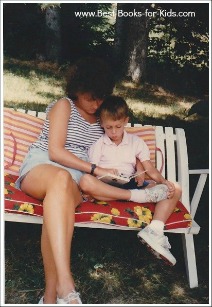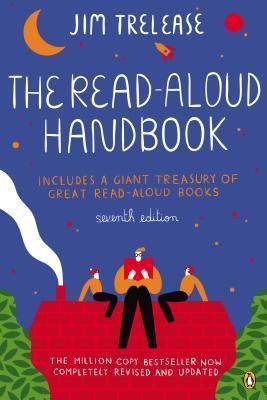You are here: home / struggling readers / reluctant readers
Reluctant Readers
Reluctant readers can be turned into capable, confident and enthusiastic readers with a bit of help from Mum and Dad.
As a teacher and mum, I have seen this happen time and again and am convinced that every child can be helped to enjoy reading, even if he or she loathes it at the moment. It takes time, effort and a bit of cunning planning but it's not difficult and it won't necessarily cost you anything at all.
If you have a reluctant reader at your place, please read on. Together I'm sure we can help your reluctant reader learn to love reading!
In this section of Best Books for Kids you'll find information about:
- why some kids are reluctant to read;
- why it's important to help reluctant readers become capable and enthusiastic readers;
- things you can do to help your reluctant reader enjoy reading;
Does this sound good? Let's get going then!
But first, a definition.
What Is A Reluctant Reader?
If you've landed on this page, you probably have a reluctant reader at home so you already know what I mean by the term. But, for the sake of clarity, let's look at what we mean when we say a child is a reluctant reader.
A reluctant reader is a child who is learning to read or who is already able to read independently but who does not like to read and who avoids reading. Sounds simple but the reasons why a child may be reluctant to read are many and varied.
I love books and have always loved reading. So did my three children so I never really got why someone would be reluctant to read. My three children and my five nephews all loved reading and are now capable readers however when I began studying to be a teacher, I found that some children seem to really hate reading, almost from the first moment they start school.
At university I learned strategies for helping reluctant and struggling readers and I've now had several years of helping reluctant readers become capable and enthusiastic readers.
So let's go through the process of figuring this out together, step-by-step.
Why Is My Child Reluctant To Read?
If your child avoids reading the first step is to figure out why.
There are three main possibilities:
- your child finds reading difficult so doesn't enjoy it and is reluctant to do it:
- your child doesn't like the books he's being asked to read;
- there are other activities he prefers like playing sport, watching TV or playing electronic games;
Of course, it's possible your child has all these things going on so let's look at each one in turn.
1. My Child Finds Reading Difficult
Reading is a learned skill.
Like any other learned skill, it requires persistence and practice if a child is to become good at it.
This is something we seem to have forgotten about a bit these days. If a new skill doesn't come easily to us, we often give up quite quickly and our children are the same.
Most children need to be taught the value of persisting with a new and difficult task until they've mastered it. As parents, we do this by gently encouraging them to keep trying when they face a new challenge.
Learning to read is one of these tasks. It can be challenging but persistence leads to mastery and then to a point where reading stops being an effort and starts to become something we do easily and automatically.
This is the process of moving from learning to read to reading to learn.
Some children find learning to read easy and quickly move on from the 'learning to read' stage to the 'reading to learn' stage. Others find it harder, often becoming discouraged along the way.
If your child seems to be finding reading difficult, it can be a good idea to check whether there's a medical reason or a learning difficulty which needs attention.
If your child is young and still learning to read, this is unlikely to be the case however whatever your child's age, it's best to rule it out before moving forward.
At this stage, it's a good idea to make an appointment to talk to your child's teacher. He or she may be able to reassure you that your child is "on track" with his reading or, if the teacher has noticed a problem, he or she may be able to suggest a course of action.
Teachers vary widely in their experience and skills so some may only be able to tell you that something seems "not quite right". Others may be able to suggest a hearing or vision test or an assessment by a speech therapist, for example.
It's important to be aware that an assessment by one of these professionals can pick up problems even if your child appears to hear or see perfectly well.
In fact, there's a whole range or auditory processing disorders and vision tracking problems that usually aren't picked up until a child starts learning to read.
If you've ruled out any medical problem or learning disability but your child still appears to find reading difficult, it's more than likely that he needs gentle encouragement to read more so that he gets better at it.
Keep reading for some ideas about how to do this.
2. My Child Can't Find a Book She Likes
Beginning Readers
If your child is young and still learning to read, he may be bringing home those terrible "school readers". You know, those books that are graded by a colour which signifies which reading level your child is up to?
If they're anything like the readers my children brought home, they're boring stories and completely uninspiring to read. No wonder children are reluctant to read them!
This problem's been around for years. Did you know that Dr Seuss's The Cat in the Hat was written because research showed that kids weren't learning to read because the books being used to teach them were so boring?
If this is the problem for your young reader, don't be afraid to get out your own books and read them together. The Dr Seuss books are great for this. Start with the Blue Back Books and move on to the Green Back Books when your child feels a bit more confident.
You can also try any of the other books listed on this site. Check out the tabs on the left for more ideas.
The key is to make the whole thing fun and there are a few ways to do this. You can try reading aloud to your child and letting him follow the words as you read. Take it in turns to read one line - or one page - each.
Above all, relax. If you get tense about books and reading, your child will feel tense as well and will remain reluctant to read.
Older Readers
If your older child is a reluctant reader, the trick is to find a book he will want to read.
You may have to persist and you'll probably bring home loads of books he won't like but sooner or later you'll bring home a book that catches his interest.
When this happens he'll want to read and so will quickly get better at it (have a look at my story to the right).
I firmly believe there is a book to interest every kid but finding the right book for a particular child at a particular stage of development is not always easy.
This site will give you some ideas to try but don't lose heart if you suggest a book and it receives a lukewarm reception from your child. Sometimes it's simply a timing issue. You can always put the book away or return it to the library and try again later!
And of course all children are different. Some books will appeal to one child and not another. Some children will read anything you suggest while others are more fussy.
My twins are a good example. They have read many of the same books over the years but there have also been quite a few which one son loved and the other couldn't get into.

